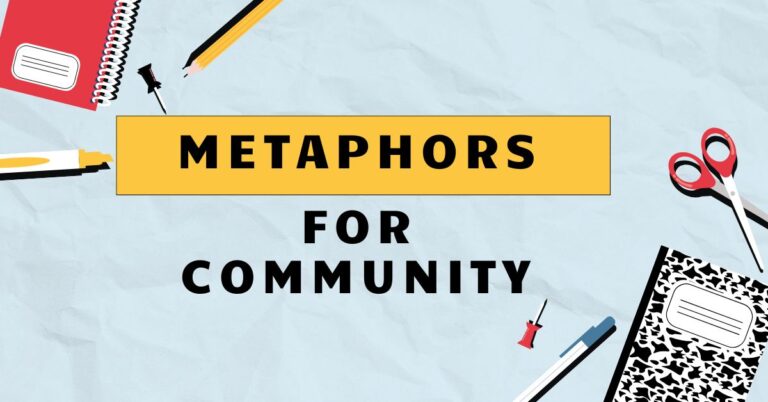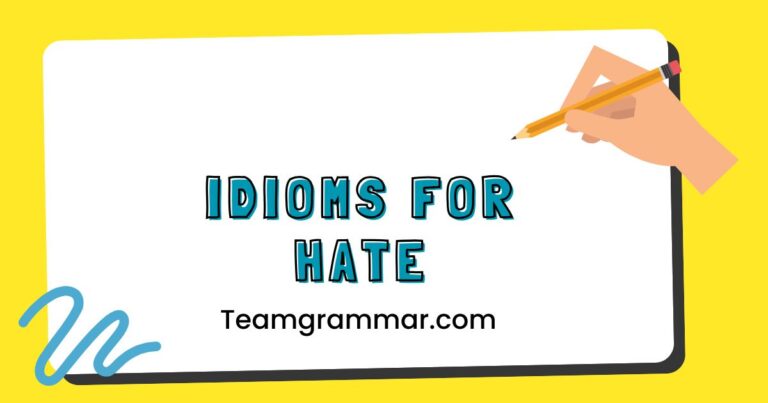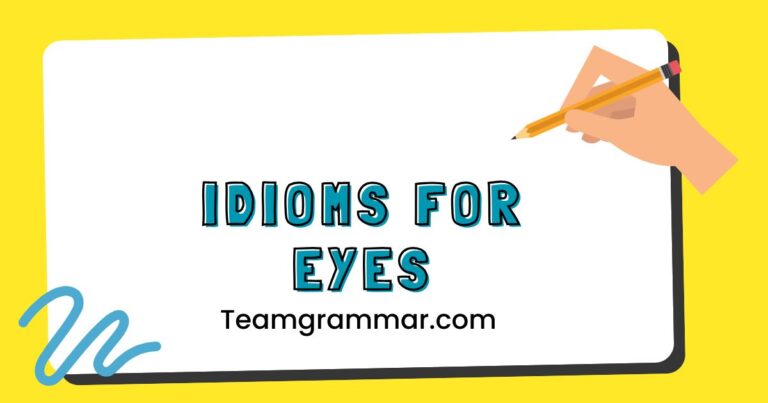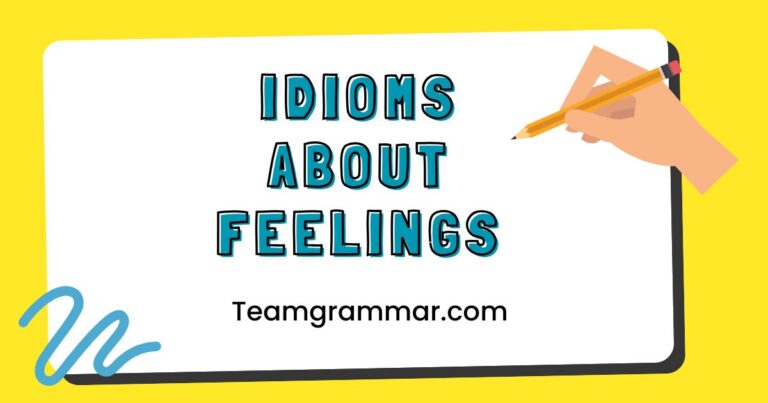41 Idioms for Waiting: Mastering English Expressions
Waiting is a universal experience, and the English language offers a rich array of idioms to describe it. Understanding these idioms not only enhances your comprehension of spoken and written English but also allows you to express yourself more colorfully and accurately.
This article provides a comprehensive guide to idioms related to waiting, perfect for English language learners and anyone looking to enrich their vocabulary and understanding of nuanced expressions.
This comprehensive guide explores the nuances of these idioms, providing definitions, examples, and practical usage tips. Whether you’re an ESL student or a native speaker aiming to refine your language skills, this article will equip you with the knowledge to confidently navigate and use idioms related to waiting in various contexts.
Prepare to expand your linguistic toolkit and communicate with greater precision and flair.
Table of Contents
- Introduction
- Definition of Idioms for Waiting
- Structural Breakdown
- Types and Categories of Waiting Idioms
- Examples of Waiting Idioms
- Usage Rules for Waiting Idioms
- Common Mistakes with Waiting Idioms
- Practice Exercises
- Advanced Topics
- FAQ
- Conclusion
Definition of Idioms for Waiting
Idioms are phrases or expressions whose meanings cannot be understood from the literal meanings of the individual words. Instead, they convey a figurative or symbolic meaning that is culturally specific.
Idioms for waiting specifically describe situations, feelings, or actions associated with the act of waiting or being kept waiting. They add color, depth, and nuance to conversations and writing, allowing for more expressive communication.
These idioms often draw on metaphors, similes, and other figures of speech to convey the experience of waiting. They capture the emotional states associated with waiting, such as anticipation, frustration, boredom, and hope.
Understanding these idioms requires familiarity with the cultural context in which they are used, as their meanings are not always immediately apparent.
Structural Breakdown
Idioms for waiting can vary in their structure, but they often follow common patterns. Some are simple phrases, while others are more complex clauses.
The structure of an idiom does not typically correlate with its meaning; instead, the meaning is derived from the collective understanding of the phrase within a specific cultural context.
Many waiting idioms involve verbs related to time or patience, such as “bide,” “linger,” or “hold.” Others may incorporate prepositions that indicate duration or location, such as “in,” “on,” or “by.” The key to understanding the structure of waiting idioms is to recognize that the individual words contribute to the overall figurative meaning rather than their literal definitions. The structure may also include comparatives, superlatives, or other descriptive elements to emphasize the intensity or duration of the waiting period.
Types and Categories of Waiting Idioms
Waiting idioms can be categorized based on the specific aspects of waiting they describe. These categories help to understand the nuances and context in which each idiom is used.
Time-Related Waiting Idioms
These idioms emphasize the duration or passage of time while waiting. They often describe how long someone has to wait or how time feels during the waiting period.
These idioms can convey a sense of urgency, boredom, or anticipation, depending on the context.
Patience-Related Waiting Idioms
These idioms focus on the level of patience required or exhibited while waiting. They often describe the emotional state of the person waiting, such as frustration, calmness, or restlessness.
These idioms highlight the psychological impact of waiting and the challenges of maintaining composure.
Uncertainty-Related Waiting Idioms
These idioms highlight the ambiguity or lack of clarity surrounding the waiting period. They often describe situations where the outcome is unknown or the duration of the wait is uncertain.
These idioms capture the anxiety and speculation that can accompany waiting for results or decisions.
Inactivity-Related Waiting Idioms
These idioms describe the state of being idle or inactive while waiting. They often emphasize the lack of activity or progress during the waiting period.
These idioms can convey a sense of boredom, stagnation, or wasted time.
Examples of Waiting Idioms
Below are several examples of waiting idioms, categorized by type, to illustrate their usage and meaning. Each table provides a variety of examples to showcase the breadth and depth of these expressions.
Time-Related Idiom Examples
This table provides examples of common time-related waiting idioms, along with their meanings and example sentences.
| Idiom | Meaning | Example Sentence |
|---|---|---|
| Mark time | To do something that does not make progress but keeps you busy | The project is on hold, so we’re just marking time until the funding comes through. |
| Hold your horses | Wait a moment; be patient. | Hold your horses! Let’s think about this before making a decision. |
| Wait in the wings | To be ready to take action or assume a role when the time is right | She’s been waiting in the wings for years, ready to take over as CEO. |
| Sweat it out | To wait anxiously for something to happen | We have to sweat it out until the exam results are posted. |
| Bide your time | Wait patiently for a good opportunity to do something | He’s biding his time, waiting for the perfect moment to launch his new product. |
| Cool your heels | To be kept waiting | The manager made us cool our heels in the lobby for an hour. |
| Hold on a second | Wait for a very short time | Hold on a second, I’ll be right back with your coffee. |
| In a holding pattern | In a state of waiting or suspended activity | Our plans are in a holding pattern until we get approval from the board. |
| Wait for the other shoe to drop | To anticipate a further, usually negative, event after an initial one | After the first layoff, everyone was waiting for the other shoe to drop. |
| Hang fire | To delay or postpone action | Let’s hang fire on this decision until we have more information. |
| Wait one’s turn | To wait for the appropriate time or order to do something | Everyone has to wait their turn to speak at the meeting. |
| Hold the fort | To take care of things while someone is away | Can you hold the fort while I run to the store? |
| Sit tight | To wait patiently and take no action | Just sit tight, and I’ll call you when I have news. |
| Wait for the dust to settle | To wait until a situation becomes calmer or clearer | Let’s wait for the dust to settle before making any rash decisions. |
| In the meantime | During the period of time between two events | The repairs will take a week, but in the meantime, we can use this spare car. |
| Hold back | To restrain oneself from acting or speaking | He had to hold back his anger when he heard the news. |
| Keep someone hanging | To delay giving someone a decision or answer | Don’t keep me hanging; just tell me if I got the job or not. |
| Linger on | To continue to wait or delay | The decision lingers on as the committee debates the pros and cons. |
| Tarry a while | To delay leaving; to remain | Why don’t you tarry a while and have another cup of tea? |
| Hold over | To postpone to a later date | The meeting was held over until next week due to unforeseen circumstances. |
| Hold up | To delay or impede | The accident held up traffic for hours. |
| In abeyance | In a state of temporary disuse or suspension | The project is being held in abeyance until further notice. |
| Stall for time | To delay deliberately | He tried to stall for time while waiting for reinforcements. |
| To while away the hours | To spend time in a relaxed way | They whiled away the hours playing cards. |
| Wait it out | To wait until the end of a difficult situation | We just have to wait it out and see what happens. |
Patience-Related Idiom Examples
This table focuses on idioms that describe different levels of patience or frustration while waiting. These idioms capture the emotional experience of waiting, from calm acceptance to agitated impatience.
| Idiom | Meaning | Example Sentence |
|---|---|---|
| Have a short fuse | To get angry easily | He has a short fuse, so be careful what you say to him while he’s waiting. |
| Lose your cool | To become angry or lose your composure | Don’t lose your cool just because we’re running late. |
| Keep your shirt on | Stay calm; don’t get angry | Keep your shirt on! The bus will be here soon. |
| On pins and needles | Anxious or nervous about something that is going to happen | I was on pins and needles waiting for the doctor to call with the results. |
| At the end of one’s rope | Having no more patience or energy to deal with a situation | After waiting for hours, she was at the end of her rope. |
| Bite your tongue | To stop yourself from saying something you really want to say | I had to bite my tongue to avoid arguing with him while we waited. |
| Control your temper | To manage or restrain one’s anger | He struggled to control his temper as the long line barely moved. |
| Exercise patience | To practice being patient | You need to exercise patience when dealing with bureaucracy. |
| Have a long fuse | To be slow to anger | She has a long fuse and can handle stressful waiting situations calmly. |
| Keep a lid on it | To keep something under control, especially emotions | He tried to keep a lid on it, but his frustration was evident. |
| Keep your chin up | To remain cheerful in a difficult situation | Keep your chin up; the waiting won’t last forever. |
| Keep your peace | To remain silent and avoid conflict | I decided to keep my peace rather than argue about the delay. |
| Make the best of it | To try to be as happy and positive as possible in a difficult situation | We’re stuck here for hours, so let’s make the best of it. |
| Not have the patience of a saint | To not be very patient | I don’t have the patience of a saint, so please hurry up. |
| Try one’s patience | To test someone’s ability to remain patient | The constant delays were really trying my patience. |
| Wear thin | To gradually decrease or disappear | My patience was beginning to wear thin after waiting for so long. |
| Bear with someone | To be patient and understanding with someone | Please bear with me while I sort this out, there may be longer waiting times. |
| Grin and bear it | To accept something unpleasant without complaining | We just have to grin and bear it until the storm passes. |
| Hold your tongue | To avoid saying something that might offend someone | I had to hold my tongue to avoid making the situation worse. |
| Keep your cool | To remain calm and composed | It’s important to keep your cool, even when things get stressful. |
| Patience is a virtue | Being patient is a good quality | Patience is a virtue, especially in situations like this. |
| Take it in stride | To deal with problems calmly and without getting upset | He took it in stride when he heard about the delay. |
| Turn the other cheek | To choose not to retaliate when someone has hurt or offended you | Sometimes, it’s best to turn the other cheek and avoid conflict. |
| Wait it out | To wait until something ends, usually something unpleasant | We just have to wait it out and see what happens. |
| Keep a stiff upper lip | To remain brave and not show emotion in a difficult situation | She kept a stiff upper lip even though she was anxious about the results. |
Uncertainty-Related Idiom Examples
The idioms in this table capture the feeling of waiting when the outcome is uncertain. These idioms reflect the anxiety, anticipation, and speculation that often accompany such situations.
| Idiom | Meaning | Example Sentence |
|---|---|---|
| In limbo | In an uncertain situation, not knowing what will happen next | Our plans are in limbo until we get confirmation from the client. |
| Up in the air | Uncertain; undecided | The decision about the new project is still up in the air. |
| Hang in the balance | In a state of uncertainty about what will happen | The fate of the company hangs in the balance as we wait for the merger to be approved. |
| Waiting game | A situation in which one must wait to see what happens | It’s a waiting game now; we just have to see how the market reacts. |
| Cross that bridge when you come to it | Deal with a problem when it actually happens, not before | Let’s cross that bridge when we come to it; there’s no point worrying about it now. |
| Don’t count your chickens before they hatch | Don’t make plans based on assumptions that something good will happen | We haven’t won the contract yet, so don’t count your chickens before they hatch. |
| Keep your options open | Avoid making a decision that would prevent you from doing something else later | We’re keeping our options open until we see how the situation develops. |
| Play it by ear | To proceed without a definite plan, adapting as things develop | Let’s just play it by ear and see what happens. |
| See how the cookie crumbles | To wait and see what happens | We’ve done all we can; now we just have to see how the cookie crumbles. |
| Wait and see | To delay action until you know what is going to happen | We’ll just have to wait and see what the outcome is. |
| Wait for the verdict | To wait for a decision or judgment | Everyone is waiting for the verdict to be announced. |
| In suspense | In a state of excitement or anxiety regarding an uncertain event | We were left in suspense, not knowing if we had won. |
| Keep someone in suspense | To keep someone anxious because they do not know what will happen | Don’t keep me in suspense; tell me what happened! |
| Up for grabs | Available to anyone who wants it | The position is still up for grabs, so apply if you’re interested. |
| What the future holds | What will happen in the future | No one knows what the future holds, but we can hope for the best. |
| A shot in the dark | An attempt to do something when you have no idea whether it will succeed | Applying for the job was just a shot in the dark, but I got it! |
| At a crossroads | At a point where one has to make a very important decision | He’s at a crossroads in his career and needs to decide what to do next. |
| In the lap of the gods | Beyond human control; in the hands of fate | The outcome is in the lap of the gods now. |
| See which way the wind blows | To find out what is happening or what other people are doing before taking action | Let’s see which way the wind blows before we make a decision. |
| Take a chance | To do something even though it involves risk | I decided to take a chance and apply for the scholarship. |
| Take a leap of faith | To do something that you know is risky | Starting her own business was a leap of faith. |
| Wait for the opportune moment | To wait for the best time to do something | He’s waiting for the opportune moment to invest. |
| In the cards | Likely to happen | A promotion might be in the cards if you keep working hard. |
| Hanging by a thread | In a very uncertain or dangerous situation | His chances of survival are hanging by a thread. |
Inactivity-Related Idiom Examples
This table provides examples of idioms that describe the state of being inactive or idle while waiting. These idioms often reflect feelings of boredom, stagnation, or wasted time.
| Idiom | Meaning | Example Sentence |
|---|---|---|
| Twiddle your thumbs | To do nothing for a period of time, usually because you are bored | I was just twiddling my thumbs waiting for the meeting to start. |
| Gather dust | To be left unused for a long time | The equipment has been gathering dust in the corner since the project was cancelled. |
| Kill time | To do something to make time pass quickly while waiting | We killed time by playing cards while we waited for our flight. |
| Let the grass grow under your feet | To delay taking action; to be idle | Don’t let the grass grow under your feet; start working on the project now! |
| Rest on your laurels | To be satisfied with your past achievements and not try to achieve anything new | He can’t afford to rest on his laurels; he needs to keep innovating. |
| Sit on your hands | To do nothing when action is required or expected | We can’t just sit on our hands while the situation gets worse. |
| Stand idly by | To do nothing to stop something bad from happening | We can’t stand idly by while innocent people suffer. |
| Vegetate | To live or spend time in a passive way, doing little or nothing | I just want to vegetate in front of the TV all weekend. |
| Watch the clock | To pay close attention to the time, especially when you are bored or eager to leave | I was watching the clock all afternoon, waiting for the workday to end. |
| Whittle away the time | To spend time doing something unproductive | They whittled away the time by chatting and drinking coffee. |
| While away the hours | To spend time in a relaxed way | We whiled away the hours playing board games. |
| Idle away | To waste time doing nothing | They idled away the afternoon at the beach. |
| Lounge around | To relax in a lazy way | We spent the day lounging around the pool. |
| Loaf around | To spend time doing nothing | He likes to loaf around on weekends. |
| Pass the time | To do something to make time go by more quickly | We passed the time by reading magazines. |
| Hang around | To spend time somewhere, usually without doing anything important | They hung around the park all day. |
| Mark time | To do something that does not make progress but keeps you busy | While waiting for approval, the team was just marking time with minor tasks. |
Usage Rules for Waiting Idioms
Using waiting idioms correctly requires understanding their specific meanings and appropriate contexts. While idioms are often figurative, they should still be used in a way that aligns with the overall message and tone of the communication.
Incorrect usage can lead to confusion or misinterpretation.
It’s also important to consider the audience when using idioms. While they can add color and expressiveness to language, they may not be appropriate for all situations, especially when communicating with non-native speakers or in formal settings.
Overusing idioms can also make your language sound unnatural or forced.
Pay attention to the grammatical structure of the idiom and ensure that it fits correctly within the sentence. Some idioms require specific verb tenses or prepositions.
Also, be mindful of regional variations in idiom usage, as some idioms may be more common or have slightly different meanings in certain areas.
Common Mistakes with Waiting Idioms
One common mistake is interpreting idioms literally. Because idioms have figurative meanings, understanding the individual words is not enough.
For example, “hold your horses” does not literally mean to restrain horses; it means to be patient.
Another mistake is using idioms in inappropriate contexts. For example, using a very informal idiom in a formal business presentation would be inappropriate.
It’s crucial to understand the tone and setting in which an idiom is appropriate.
Here are some examples of common mistakes and their corrections:
| Incorrect | Correct | Explanation |
|---|---|---|
| “I’m holding my horses for the bus.” | “I’m holding my horses; the bus will be here soon.” | The idiom is used in the wrong context. It means to be patient, not literally holding horses. |
| “We are in the limbo of our plans.” | “Our plans are in limbo.” | The preposition “the” is unnecessary and grammatically incorrect within the idiom. |
| “He is sweating the results out.” | “He is sweating it out waiting for the results.” | Missing “it” after “sweating” makes the idiom grammatically incorrect. |
Practice Exercises
Test your understanding of waiting idioms with these practice exercises. Choose the correct idiom to complete each sentence.
| Question | Options | Answer |
|---|---|---|
| 1. We have to ______ and see what happens with the negotiations. | a) bite our tongue b) wait and see c) lose our cool | b) wait and see |
| 2. After waiting for hours, she was ______ and ready to give up. | a) at the end of her rope b) holding her horses c) keeping her shirt on | a) at the end of her rope |
| 3. The project is ______ until we get the necessary approvals. | a) in a holding pattern b) killing time c) gathering dust | a) in a holding pattern |
| 4. Just ______ and I’ll be right back with your order. | a) hold your horses b) hold on a second c) hold the fort | b) hold on a second |
| 5. Don’t ______; the decision will be made soon. | a) hang fire b) sweat it out c) cool your heels | c) cool your heels |
| 6. He’s ______ for the perfect opportunity to launch his new business. | a) biding his time b) marking time c) killing time | a) biding his time |
| 7. We just have to ______ and see how the situation unfolds. | a) wait it out b) stand idly by c) sit on our hands | a) wait it out |
| 8. The fate of the company ______ on the success of this new product. | a) hangs in the balance b) is up in the air c) is in limbo | a) hangs in the balance |
| 9. I was so nervous waiting for the results, I was ______ . | a) on pins and needles b) cooling my heels c) twiddling my thumbs | a) on pins and needles |
| 10. Since the project was cancelled, the equipment has been ______ in the corner. | a) killing time b) gathering dust c) marking time | b) gathering dust |
Advanced Topics
For advanced learners, exploring the etymology and historical context of waiting idioms can provide a deeper understanding of their meanings and usage. Many idioms have roots in historical events, cultural practices, or literary works.
Understanding these origins can enhance appreciation for the richness and complexity of the English language.
Additionally, analyzing the use of waiting idioms in literature, film, and other forms of media can provide insights into how these expressions are used to convey character, emotion, and theme. Pay attention to how authors and filmmakers use idioms to create specific effects and enhance their storytelling.
Another advanced topic is comparing waiting idioms across different languages and cultures. While some idioms may have direct equivalents in other languages, others may be unique to English or have different connotations in other cultures.
This comparative analysis can shed light on cultural differences in perceptions and experiences of waiting.
FAQ
Here are some frequently asked questions about waiting idioms:
- What is an idiom?
An idiom is a phrase or expression whose meaning is different from the literal meaning of the individual words it contains. Idioms are culturally specific and often metaphorical.
- Why are idioms important in English?
Idioms add color, depth, and nuance to communication. Understanding idioms enhances comprehension and allows for more expressive and natural language use. They show a deeper understanding of the language and culture.
- How can I learn new idioms?
Read widely, listen to native speakers, and pay attention to the context in which idioms are used. Use flashcards, idiom dictionaries, and online resources to learn and practice new idioms. Immersion in the language through movies, music, and conversations can also be very helpful.
- Are idioms the same in all English-speaking countries?
No, there can be regional variations in idiom usage. Some idioms may be more common or have slightly different meanings in certain countries or regions. It’s important to be aware of these variations.
- When should I avoid using idioms?
Avoid using idioms in formal settings, when communicating with non-native speakers who may not understand them, or when clarity and precision are paramount. Overusing idioms can also make your language sound unnatural.
- How do I know the meaning of an idiom I’ve never heard before?
Look up the idiom in a dictionary or online resource. Pay attention to the context in which the idiom is used, as this can provide clues to its meaning. If possible, ask a native speaker for clarification.
- Can I create my own idioms?
While it’s possible to create new expressions, they won’t be idioms unless they are widely adopted and understood by a community of speakers. Idioms typically evolve over time through cultural usage.
- What is the difference between an idiom and a proverb?
An idiom is a phrase with a figurative meaning, while a proverb is a short, well-known saying that expresses a general truth or piece of advice. Proverbs are often more universal and less culturally specific than idioms.
- How can I practice using idioms in my own speech and writing?
Start by incorporating a few new idioms into your vocabulary each week. Practice using them in conversations, writing exercises, and role-playing scenarios. Ask for feedback from native speakers to ensure you are using them correctly.
- Are there any good resources for learning more about idioms?
Yes, there are many excellent resources available, including idiom dictionaries, online language learning platforms, and books on English idioms. Look for resources that provide definitions, examples, and practice exercises.
Conclusion
Mastering idioms for waiting is a valuable skill for anyone learning or seeking to refine their English language abilities. These expressions add color and depth to communication, allowing for more nuanced and expressive language use.
By understanding the definitions, structures, and usage rules of these idioms, you can confidently navigate a wide range of conversational and written contexts.
Remember to practice using new idioms regularly and pay attention to the context in which they are used. With consistent effort, you can expand your vocabulary and enhance your ability to communicate effectively and naturally in English.
Embrace the richness of the English language and continue exploring the fascinating world of idioms.







